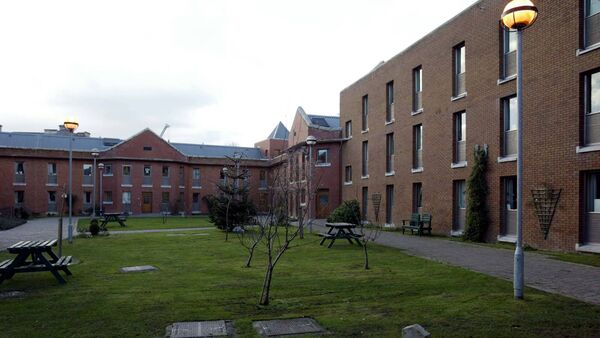
Dóchas Centre
Perhaps April is indeed the cruelest month, but when it comes to prison overcrowding, abuse, and general disregard for human dignity or life, it’s just another month. Take Ireland, for example. Reports started circulating at the beginning of the month that Irish prisons were dangerously overcrowded. On April 10, The Irish Times reported, “Fourfold increase in prisoners sleeping on floor as officials warn of safety risks in Mountjoy”. Since the beginning of the year, the number of prisoners sleeping on the floor has increased by 400% … in a mere three months. The pandemic must be over, and this must be what `return to normal looks like’. The epicenter of this increase is Mountjoy Prison, which is at 110% capacity. In response, prison administrators are planning to buy bunk beds. That should take care of the problem, right? No. People sleeping on the floor presents a safety hazard to both incarcerated people and staff, according to an internal memo. But here’s the thing. This article is 20 short paragraphs long. It isn’t until the seventeenth and eighteenth paragraphs that the reader learns who exactly is being endangered: “Overcrowding is worse in the Dóchas Centre women’s prison which, with 172 prisoners, is operating at 118 per cent capacity. Limerick men’s prison, which was recently expanded, is at 130 per cent capacity (274 prisoners) while Limerick women’s prison is at 175 per cent (49 prisoners).” Where are the women? Sleeping on the floor and reduced to the margins of their own stories.
As of the most recent prison census, on April 13, Dóchas Centre, the women’s section of Mountjoy, remains at 118%. The Limerick women’s section is currently at 179%. Bunk beds won’t fix that, and everyone knows as much. Building more jails won’t address the situation either.
Chaplains who service Ireland’s prison release regular reports. The most recent one for Dóchas Centre, in 2020, reported, “Most recently a prisoner was remanded to the Dóchas Centre after having spent over a year in a psychiatric facility. The prisoner was clearly unwell and confused to the extent that after a few days in custody the prisoner wanted to know what hospital she was in. From as soon as she arrived in the Dóchas Centre the prisoner remained in bed all day. Prison was obviously not the place for that prisoner, yet the prisoner had been charged, arraigned in Court and remanded to prison. After considerable intervention by the Governor and Health Care Staff, the prisoner was removed back to the psychiatric facility that she had come from …. While Staff were dealing with this prisoner two other prisoners on the same landing were even more difficult to deal with: both were self-harming and both were violent. Both of the prisoners had been treated for mental illness before coming to prison. One of the prisoners had been brought to the Dochas Centre infected with Covid 19. The other prisoner was returned to the psychiatric facility where she had been a patient. That prisoner however was returned to the Dochas after she behaved in the same violent way that she had behaved in when she was being held in the Dochas previously. Obviously she had been referred to the psychiatric facility for specialist treatment. How was she expected to receive that treatment when she was returned to the Dochas? This is a clear example of the Dochas being used as a dumping ground.”
“The Prison Service is too well aware of how prisons are constantly being used as the dumping ground for other agencies’ problems. Offenders whose offence is rooted in mental illness invariably get sent to prison because the State cannot accommodate them elsewhere. This imposes a duty of care on the Governor and his Staff which the normal exercise of their duty was not designed for. Prison Officers are not trained to handle psychiatric cases …. Covid has preoccupied all our thinking for almost a year. Hospitals filled to capacity are part of everyday discussion. At this time of terrible fear and anxiety in the community, no one is going to be surprised to hear that the Central Mental Hospital has no bed space available either. The difference however is that the CMH had no available space before the Covid 19 pandemic. Most prisons have prisoners suffering from mental illness who have been waiting for a bed in the CMH for over a year.” According to the Chaplain’s Report, the situation is “soul destroying. No one seems to care.”
The Chaplain concludes, “Government could find the resources to rescue the collapse of the banking system. Government could find the resources to pay workers to stay at home during the pandemic. Government could find the resources to protect the vulnerable from a life of addiction, homelessness and petty crime. Government instead sends the weakest and most vulnerable in society to prison at the cost of the taxpayer and the fabric of society.”
What has happened in the intervening three years? Women are no longer dumped into beds. Now, they’re dumped on the floor. Further, women have been even more deeply erased from the public record. They’re there, somewhere near the end of the rare account, as an afterthought. Where are the women? Dumped on the floor, dumped from their own stories. The Prison Service is too well aware …
(By Dan Moshenberg)
(Photo Credit: Irish Examiner)
